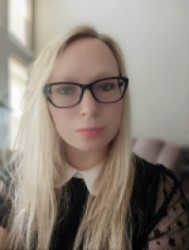 We wanted to get to know Jennia D’Lima (NAIWE’s Creative Nonfiction Expert) better, so last month we sat down with her. Here are some thoughts she shared with us.
We wanted to get to know Jennia D’Lima (NAIWE’s Creative Nonfiction Expert) better, so last month we sat down with her. Here are some thoughts she shared with us.
Do all types of life experiences make for good material for a memoir?
They all have the potential to be used to write a riveting memoir. On the other hand, even the most extraordinary life events can fall flat if style falls flat, the voice reads as inauthentic, or the pacing is off. Much like when writing a fictional narrative, these story elements contribute as much to a story’s readability as the plot or events do on their own.
At what point in an individual’s life are they ready to write their memoir?
Readiness is dictated by the intensity of the emotions that still surround the events being written about and has nothing to do with an author’s age or their life circumstances. It’s important to note that an honest emotional assessment needs to come before any outlining or writing. Writing before the emotions have settled and been processed has the potential to harm the author rather than help them find catharsis or share their story in a way that could benefit others.
Are there different types of memoirs?
Yes! There are multiple types or sub-genres when it comes to the memoir category. Summarizing each one would take an entire article, but popular subgenres include the celebrity memoir, the travel memoir (Bill Bryson is one of my favorite travel memoir authors, though he’s written books in other creative nonfiction categories as well), and the transformational memoir (overcoming some type of addiction is a popular theme seen in this subgenre). Many memoirs will fit into multiple subgenres, so I advise authors to not worry about figuring out which one is the best fit for their manuscript.
——————
You’ve lived through some harrowing, unique, life-changing, or otherwise fascinating events. You’re certain that a memoir is the best way to share these experiences and maybe even change someone else’s life or become their source of inspiration. But before you begin, it can be helpful to ask yourself a series of questions to determine whether writing a memoir is right for you. This webinar will use these questions to define what a memoir is and what it isn’t while also addressing an individual’s emotional readiness to share their story.
You can join in this conversation on February 13 at 7:00 pm eastern, when NAIWE will host a discussion on determining if writing a memoir is right for you. The cost for NAIWE members is only $10! Nonmembers can join for $30. Register today!
Jennia Herold D’Lima is a full-blown logophile. She joined her high school’s newspaper in ninth grade, winning statewide awards for her writing, and expanded her journalism skills by continuing to write and edit throughout her high school years and as a college freshman. While earning her BA in psychology (and minoring in cultural anthropology with a focus on precolonial Mesoamerica) and her MA in applied developmental psychology, her writing and editing naturally skewed toward all things academic. Writing for and publishing in peer-reviewed journals, editing papers for classmates, and writing parenting resource guides honed her research skills. Jennia joined multiple professor-led research groups and completed four internships throughout her academic career. After graduating with a master’s, she worked at a national nonprofit in Washington, DC, and as an assistant researcher at the University of Washington in Seattle. Jennia gradually transitioned to full-time editing. She is the host of the Writing & Editing podcast. Jennia enjoys traveling, volunteering, and taking creative photos of books and book-related items in those rare moments when she is not reading or editing.

Leave a Reply